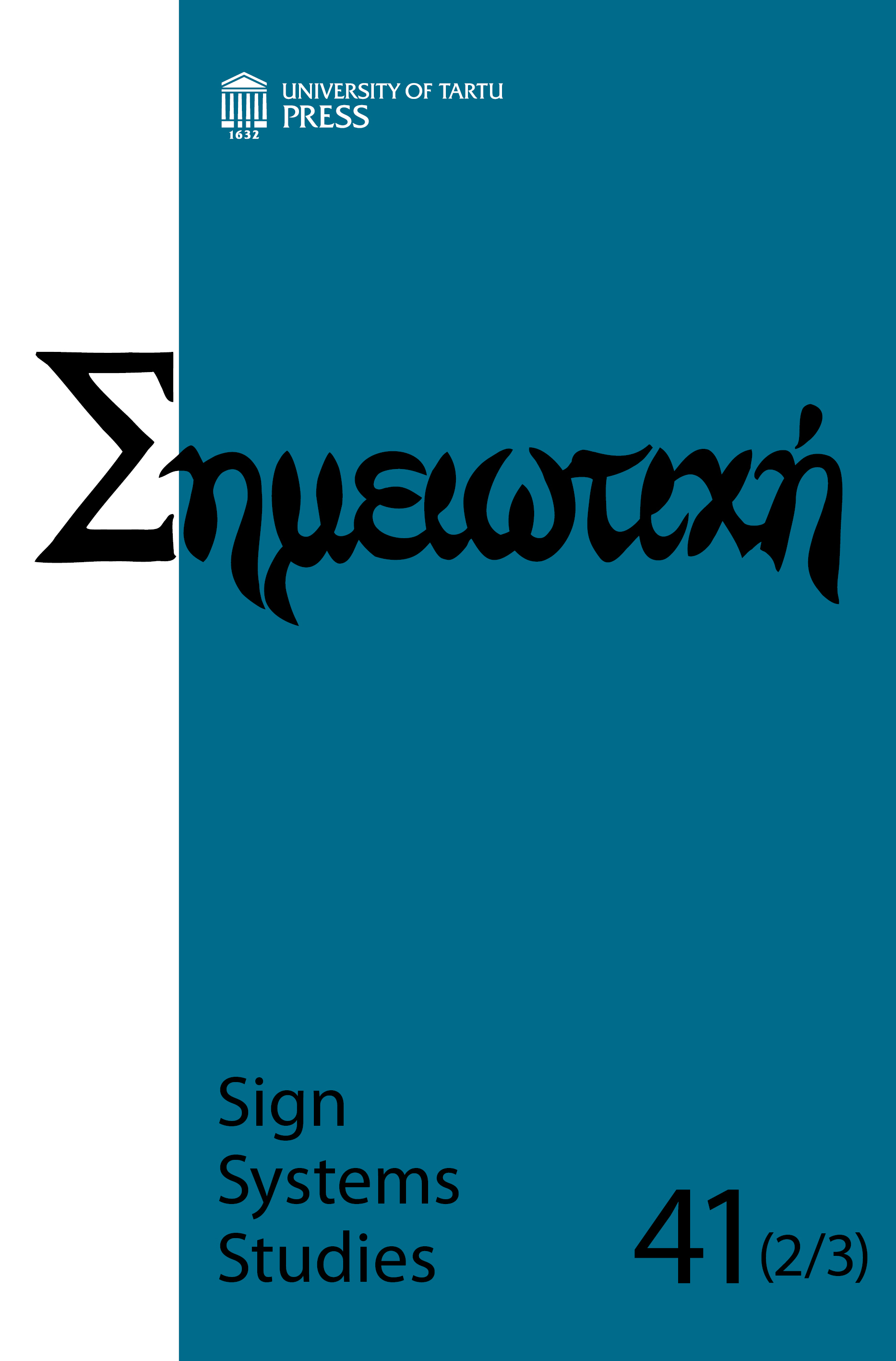Lotman’s epistemology: Analogy, culture, world
DOI:
https://doi.org/10.12697/SSS.2013.41.2-3.09Keywords:
Lotman, semiotics, epistemology, analogyAbstract
According to Jeanne Parain-Vial and others, humans are characterized by their need for analogy, together with the need for logic and intelligibility, and this need is expressed by a continuous research of models in the scientific field that can, in some aspects, bring to light some properties of reality, namely be analogous of them. The knowability of things is founded on analogy; thus, they are not exhausted by a single model of knowledge but rather through multiple and autonomous forms of comprehension.
As also pointed out by Juri Lotman and Boris Uspenskij, mythical thought was the first to postulate the possibility of establishing a relationship of likeness among very different realities, as in the archetypical cosmological model of world: a possibility that, as they explain, has survived in post-archaic man, constituting a fundamental component of cognitive activity and scientific modelling.
The article is dedicated to the use of analogy in Lotmanian semiotic theorization and to its heuristic and epistemological value.


